Bread Friends are the Best Friends

I have been a professional cook for more than 30 years, but I didn’t become a baker until relatively recently. I can trace the origins of my baking career to three pivotal moments: one, my teenage obsession with making pizza (which I have talked about previously); two, my exposure to the 2009 NYT no-knead bread recipe, soon after it was published; and three, my first trip to the Kneading Conference, in Skowhegan, Maine, in 2010.
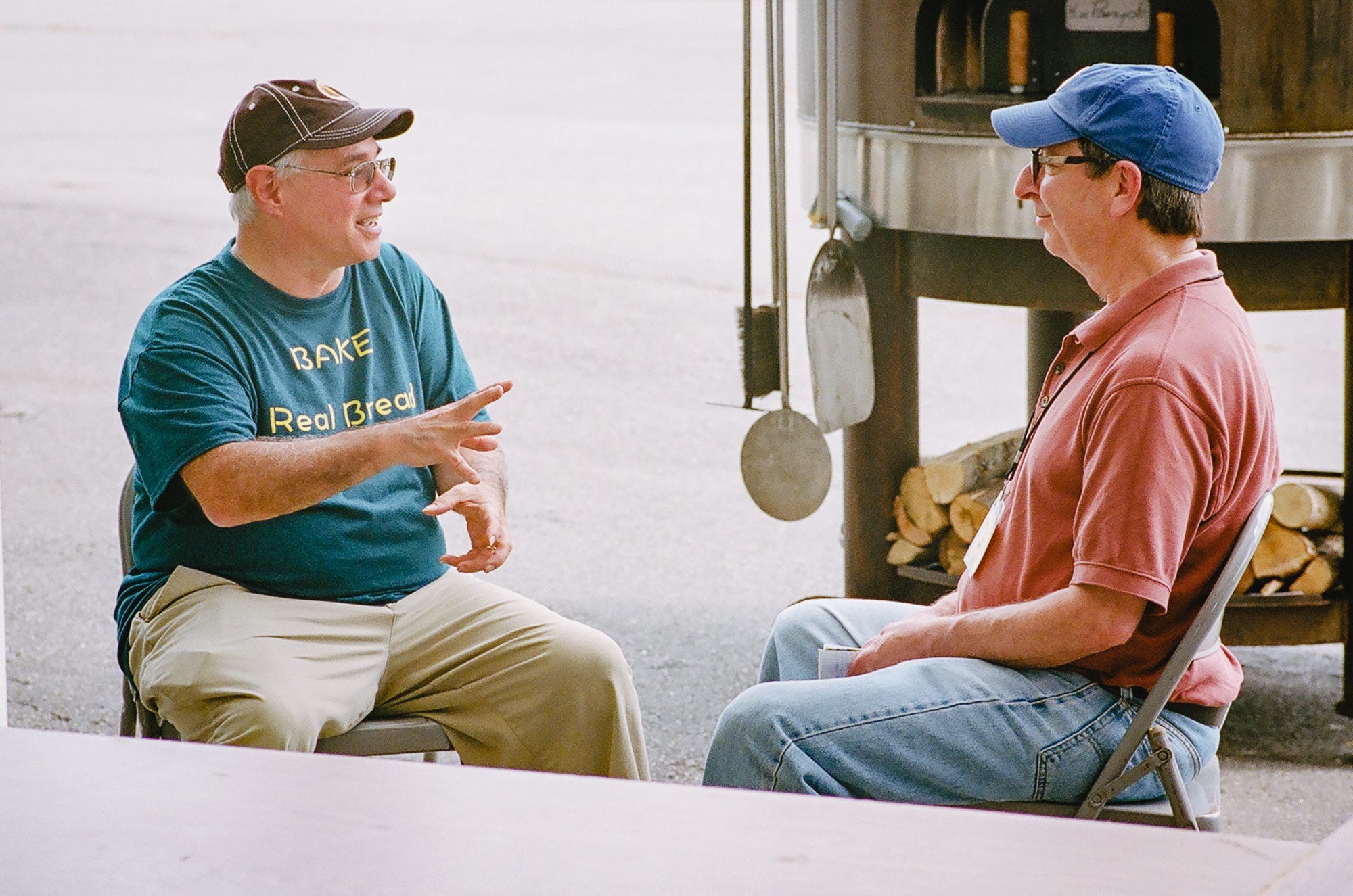
My lifelong pursuit of the perfect pizza crust laid the groundwork for an understanding of doughs, though it wasn’t until I tasted bread I’d made myself in a Dutch oven did I realize precisely how wonderful a fresh-from-the-oven homemade loaf could be. (I somehow managed to squander an entire semester in Paris in my early twenties, never once giving a thought to all the amazing baguettes, pains au levain, and croissants all around me.) But no question it was my two days at my first Kneading Conference that turned me on to the fellowship of bread bakers and made me into a true believer.
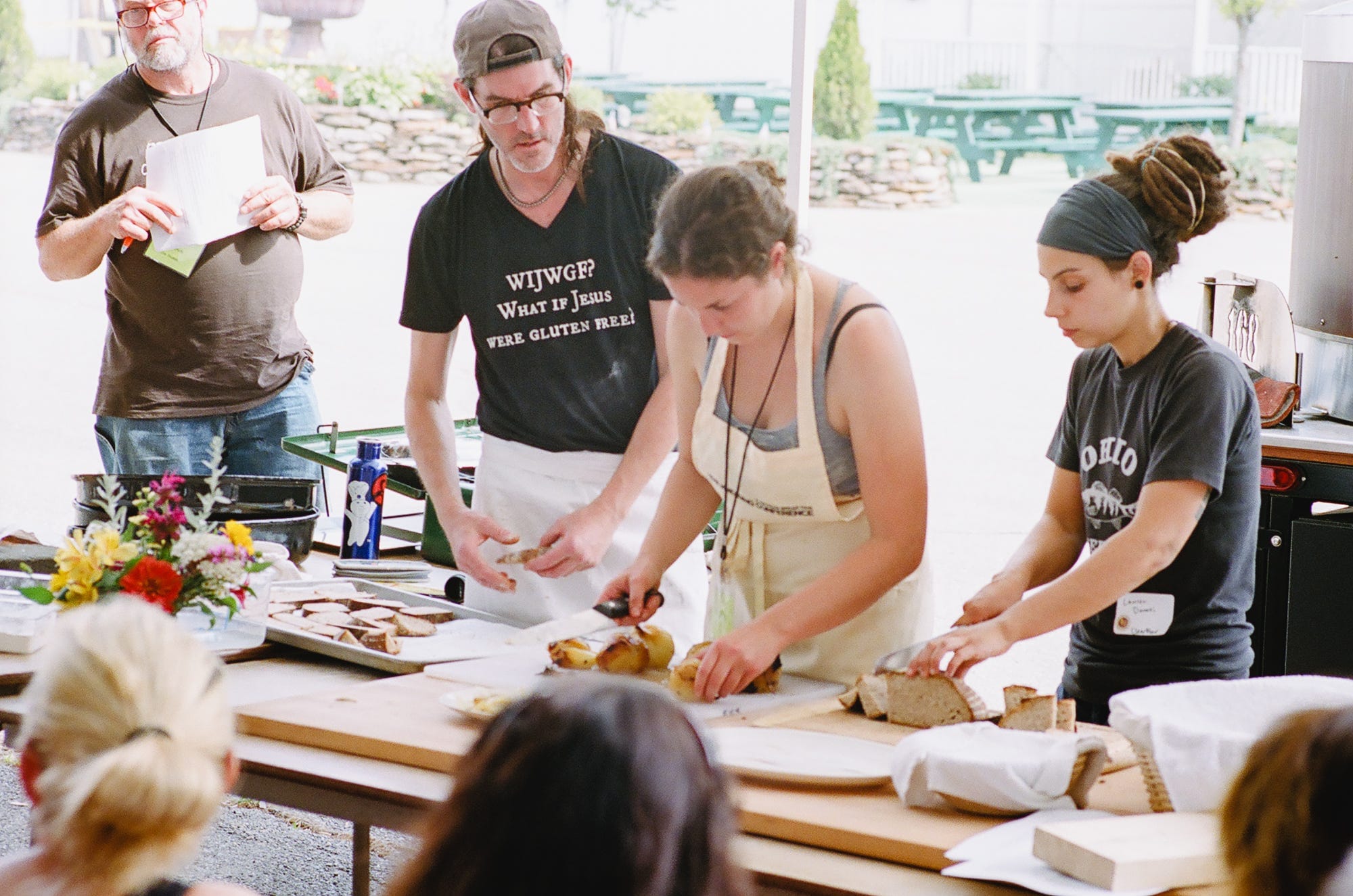
While there are a number of similar bread-centric conferences nowadays—The Bread Lab’s Grain Gathering, King Arthur’s Baker’s Harvest Conference, Le Goût du grain in Montreal—back then the Kneading Conference stood almost entirely alone. A veritable “Woodstock for breadheads”, it is an annual two-day event held on the last week of July at the Skowhegan State Fairgrounds, a few hours north and inland from Portland, Maine.
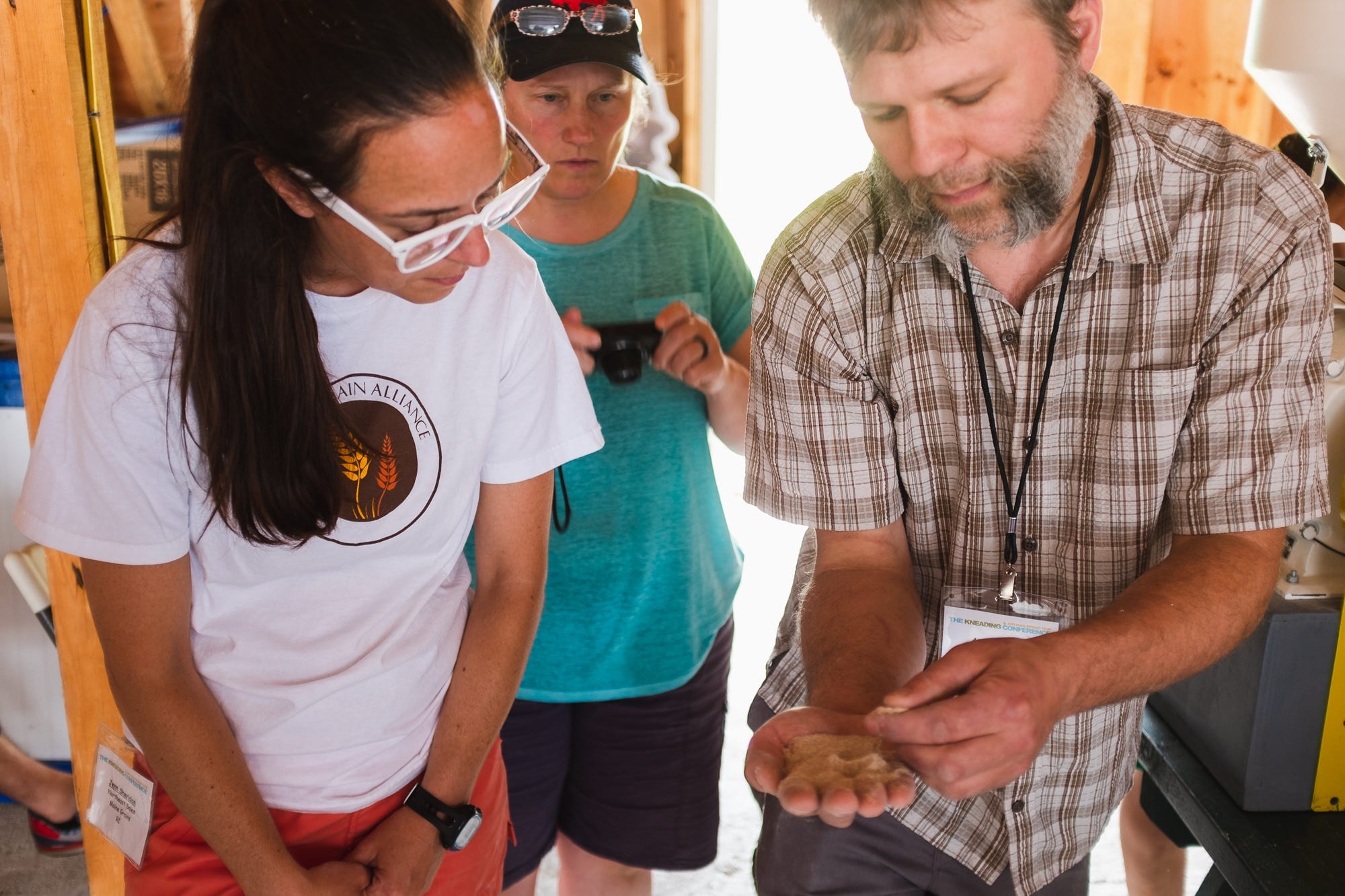
The days are filled with lectures and workshops covering and every aspect of bread and grain you can think of: growing, breeding, milling, the business of starting and running a bakery, wood-fired oven building and usage, brewing beer, making pasta, crackers, and pancakes, and of course baking bread and pastries of all kinds.

And while the classes and lectures at the Kneading Conference offer a wealth of indispensable knowledge, it’s in the in-between moments—at mealtimes, evening gatherings, or in the transitions between scheduled events—that many of its greatest gifts are to be found, where the real connections are made. I’ve met or come to know better some of those I now consider my closest friends at the Kneading Conference, and without a doubt it is those relationships that have inspired me to become the baker that I am today.
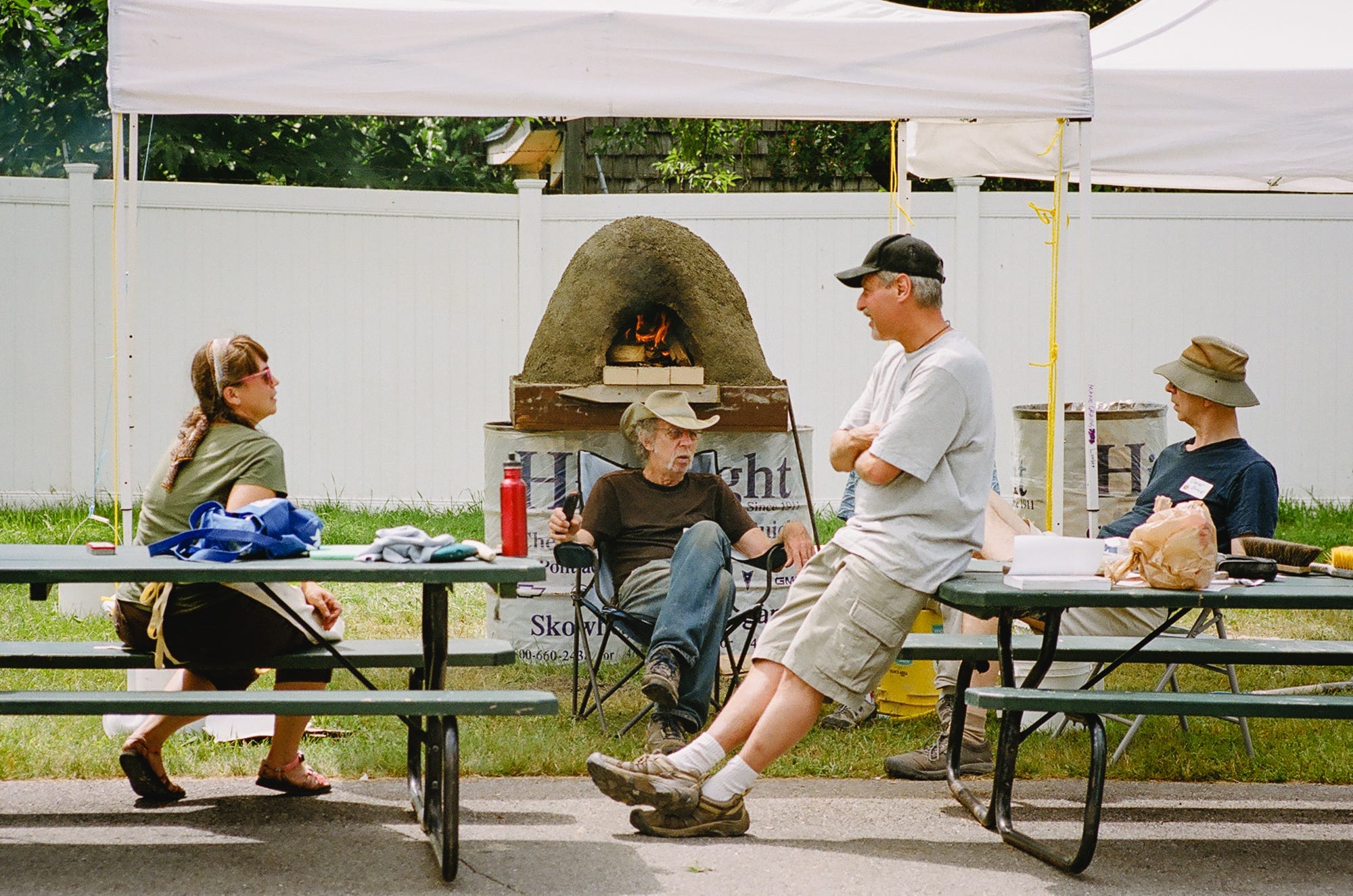
I went to that first conference as an attendee, but returned to it in subsequent years as an instructor, leading workshops on pizzas, flatbreads, and oven-building. (I love teaching, especially at the Kneading Conference, but making the move to instructor was as much about getting paid to be a part of it as anything else.) But unlike with other types of professional conferences, there’s little division between instructor and attendee: Everyone at the conference is a breadhead, and all are there for their love of grains and the art of what one can do with them.
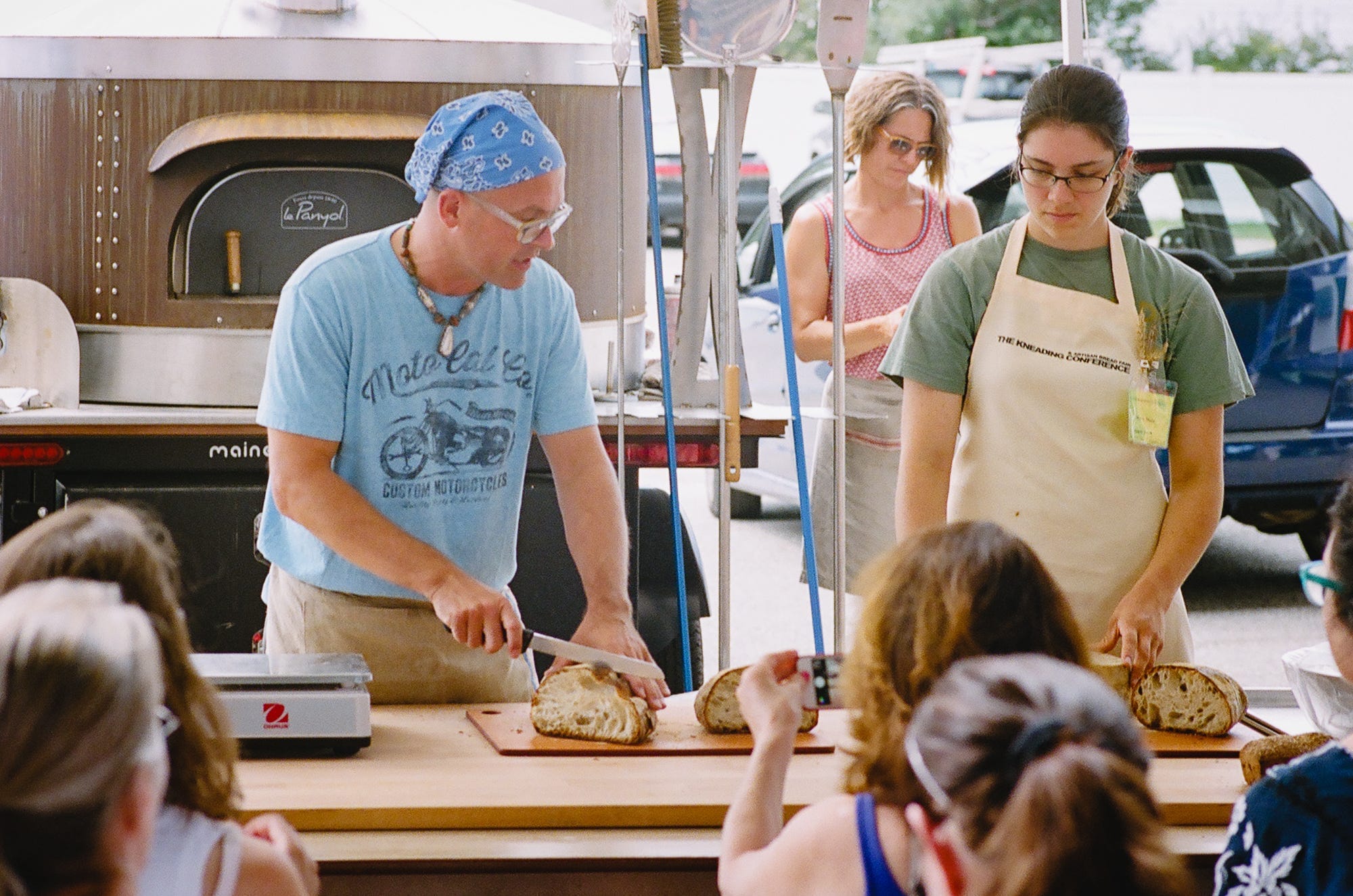
I’ve long held that bakers are among the most generous cooks there are, freely willing to share their recipes and ideas with others. Maybe that’s because bread formulas are more akin to musical scores than recipes, as much about as how they are interpreted and performed as how they are recorded, making them less in need of being kept close to the vest. Or maybe it’s because bakers recognize that there is little in the bread world that is novel or unique, except in how something is executed. Whatever the reasons for this generosity, it is on full display at the Kneading Conference. After every one of them, I leave energized and excited to get back to baking, my faith in humanity restored anew.
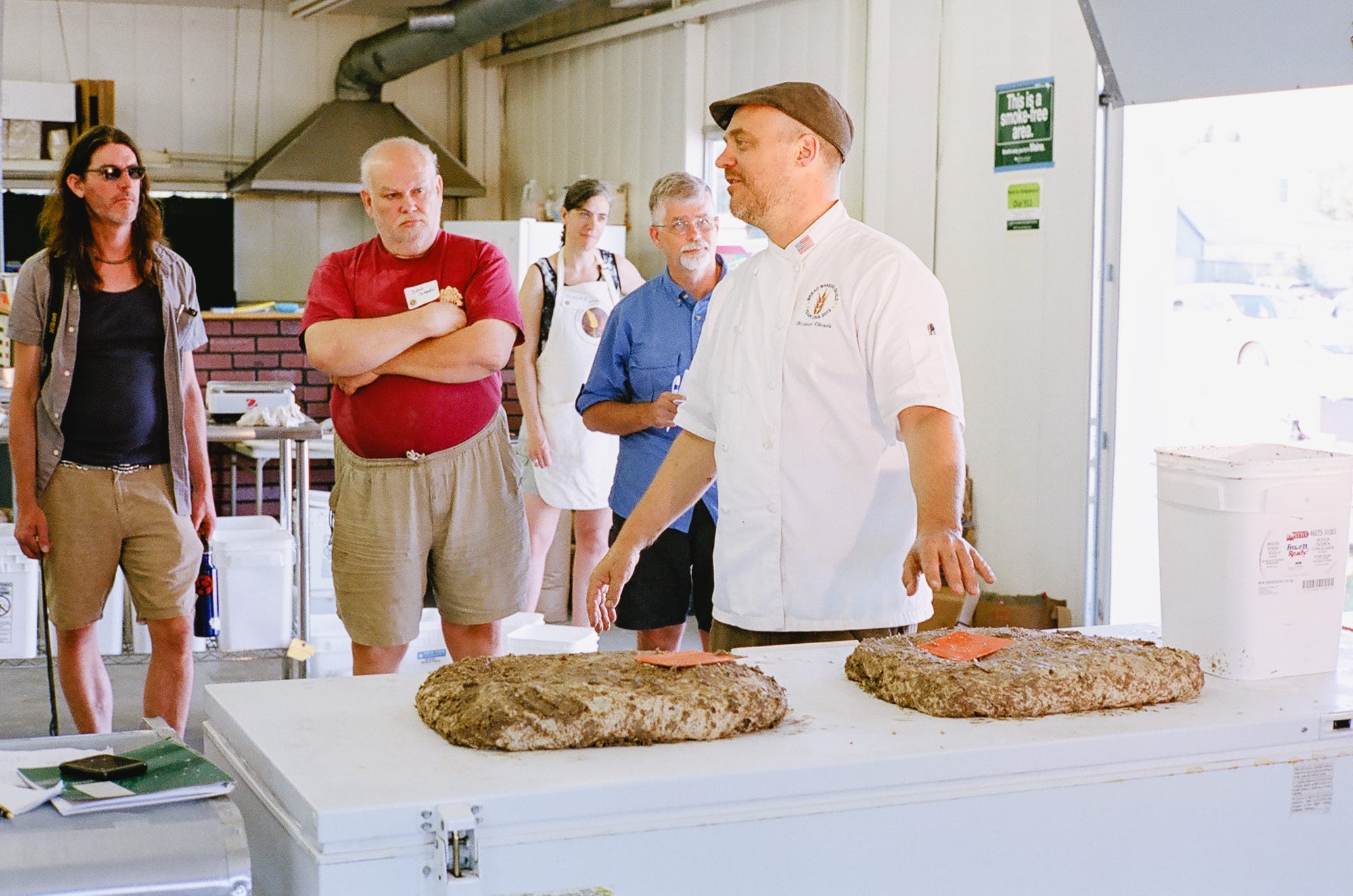
Alas, thanks to COVID-19, this year’s Kneading Conference, like last year’s, is virtual rather than in-person, so much of the camaraderie and fellowship I’m describing will be harder to come by. But the roster of instructors and list of workshops and lectures are as good as ever—Amy Halloran! Richard Miscovich! Sarah Owens! Blair Marvin! Jennifer Lapidus! Brant Stewart! William Rubel! And more!—so you should sign up just the same.

And there are upsides to the conference being virtual: it is now spread out over 5 days instead of 2, making room for additional content while eliminating the need to have multiple classes happening at any one time (which means no more agonizing over which ones you’ll be able to attend). And the classes and lectures will be available as videos to be viewed at your leisure after the conference ends, so you can catch up with those you miss or rewatch your favorites.
I hope to “see” you there, and I can't wait to see you in Skowhegan next year.
—Andrew





Member discussion